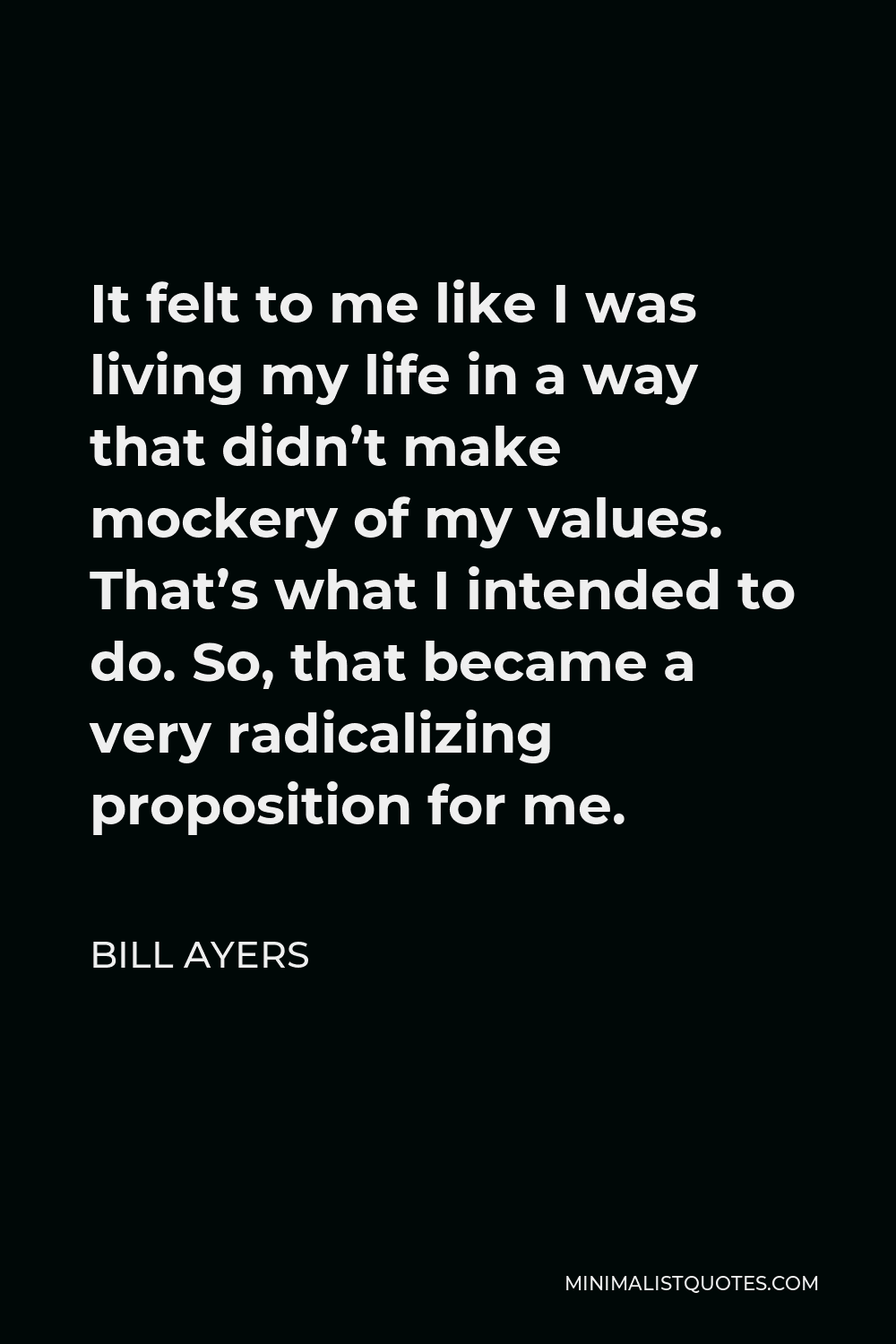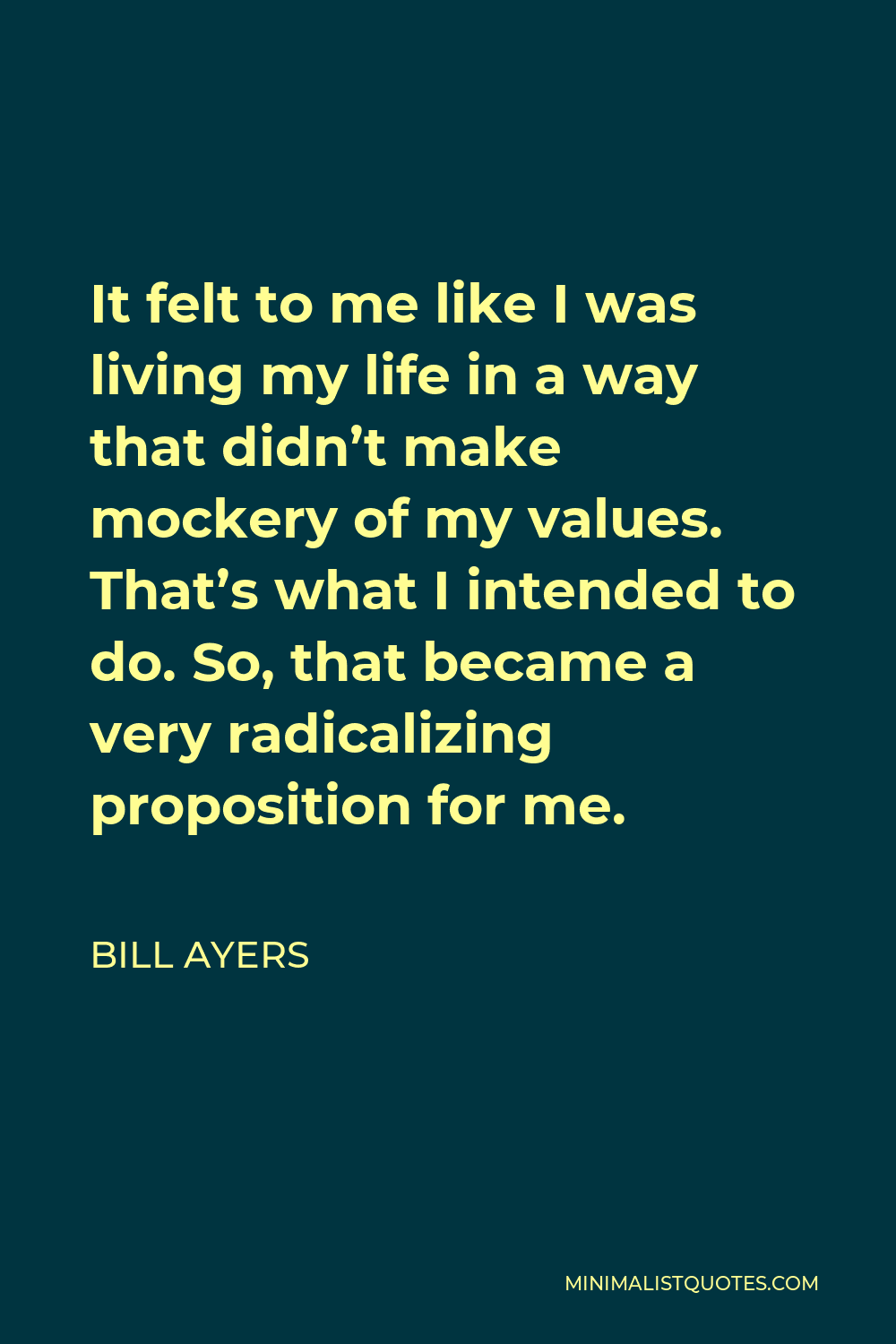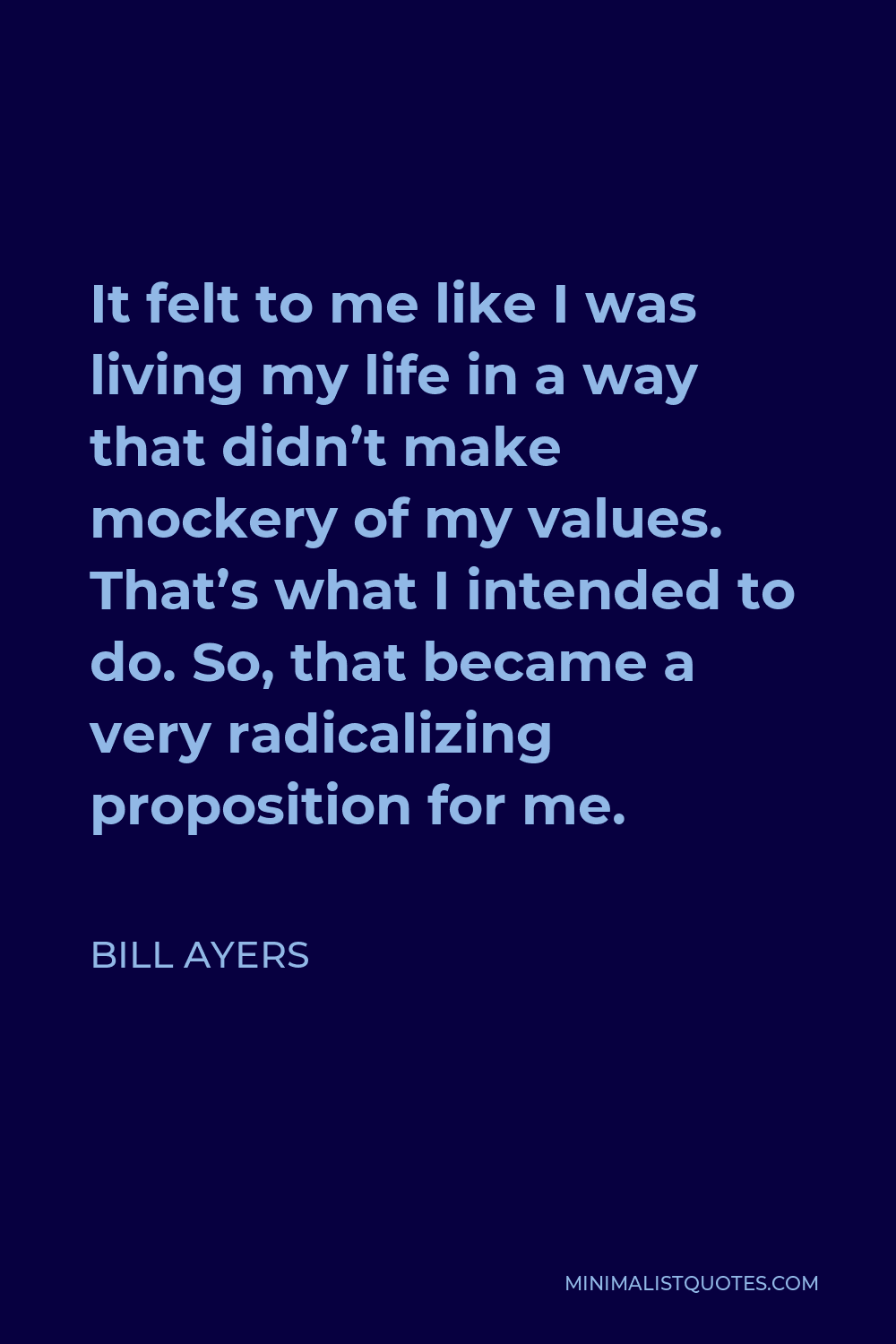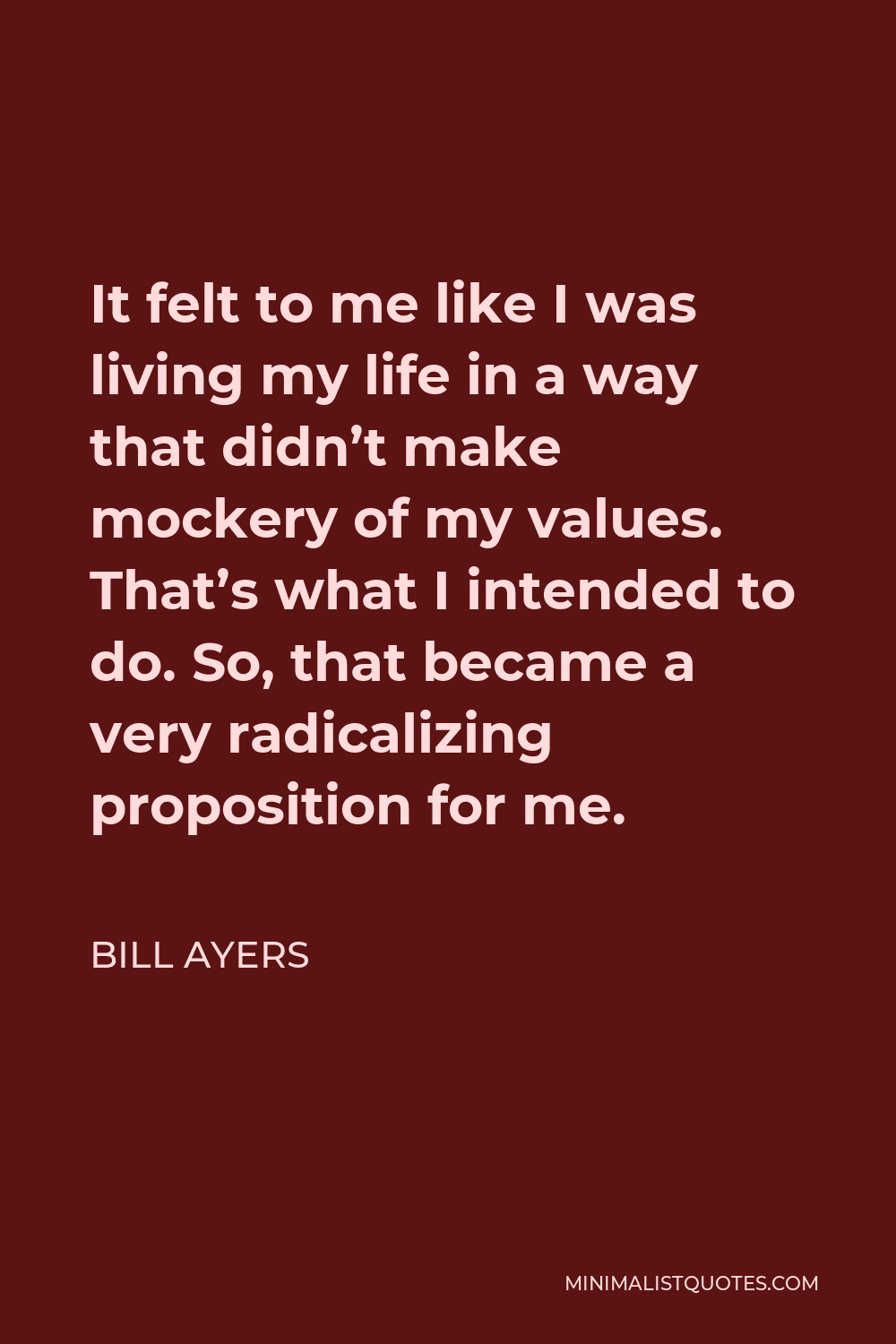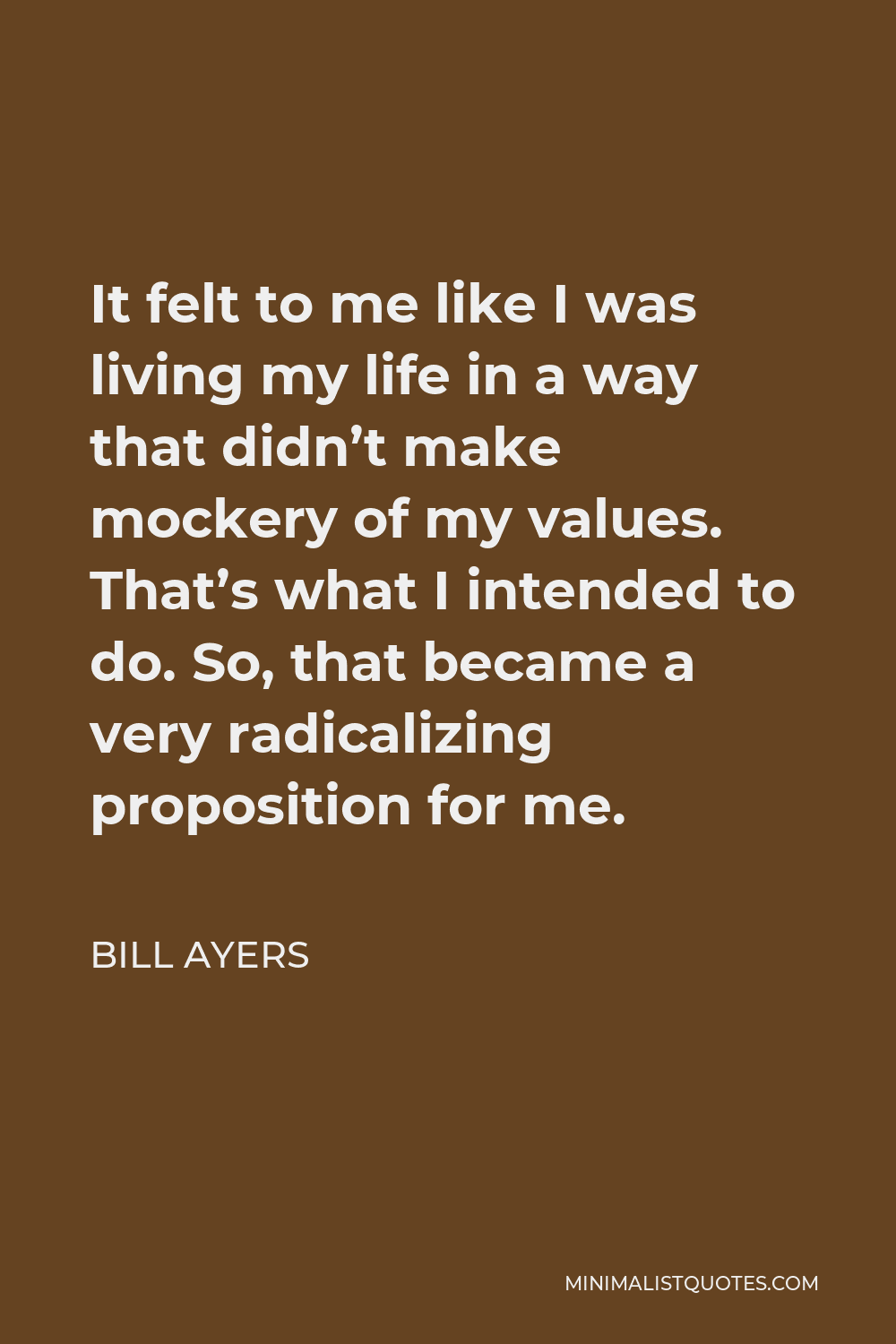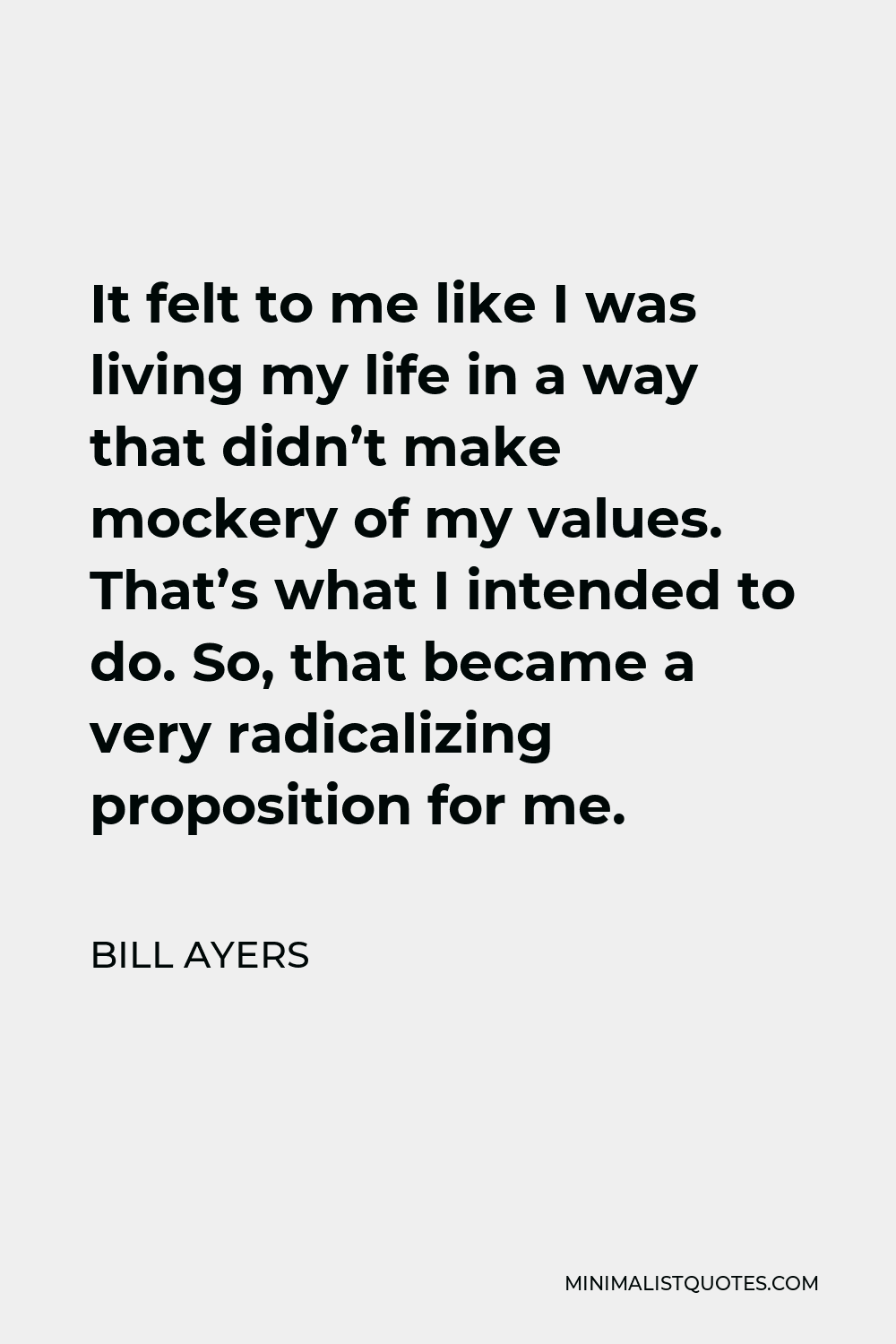The only path to the final defeat of imperialism and the building of socialism is revolutionary war.
BILL AYERSIt felt to me like I was living my life in a way that didn’t make mockery of my values. That’s what I intended to do. So, that became a very radicalizing proposition for me.
More Bill Ayers Quotes
-





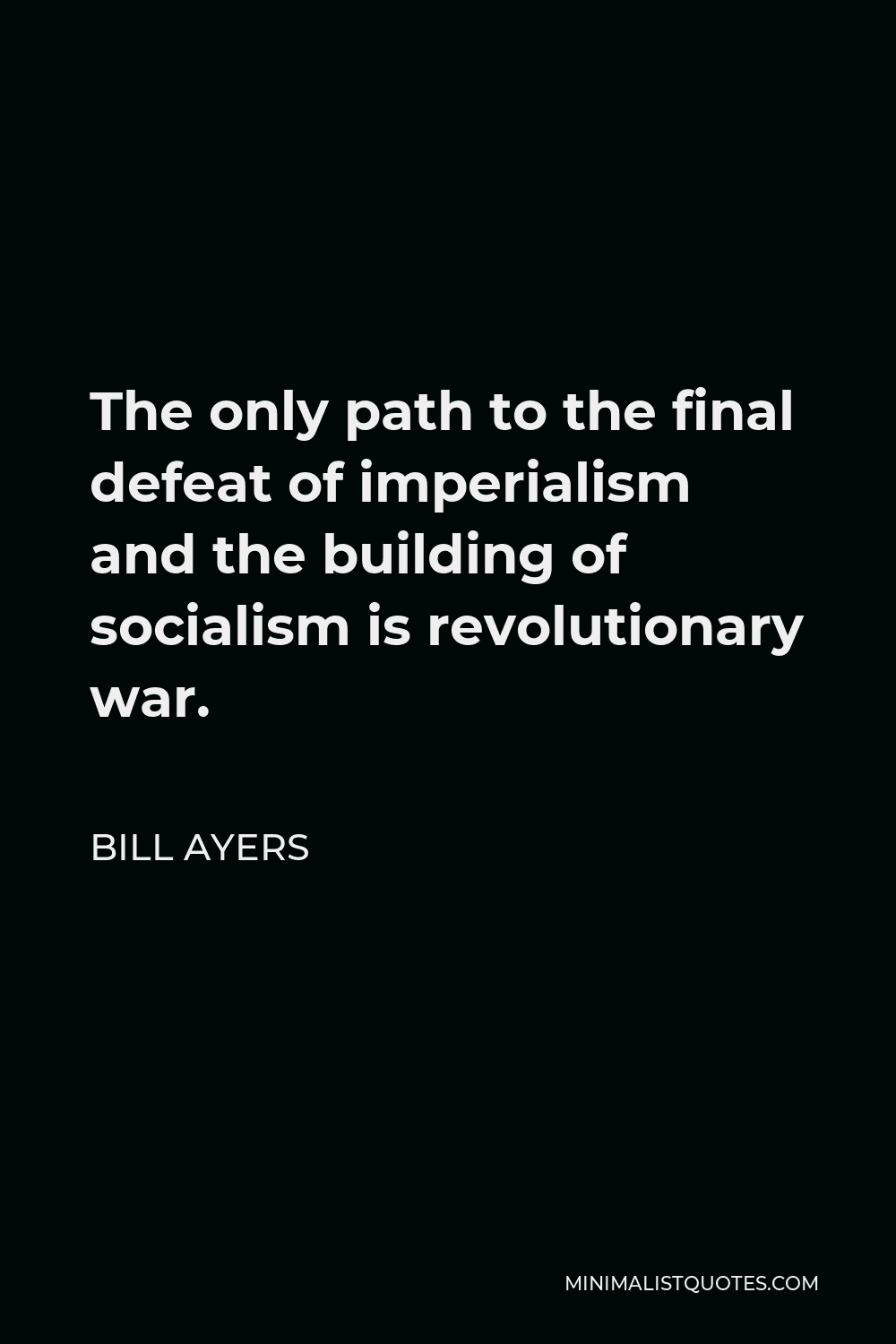
-





![Bill Ayers Quote - I’d been arrested many times by then. I’d been an organizer, so many things had changed over those three years [from 1965 till 1968].](https://minimalistquotes.com/images/id-been-arrested-many-times-by-then-id-been-an-org.jpg)
I’d been arrested many times by then. I’d been an organizer, so many things had changed over those three years [from 1965 till 1968].
BILL AYERS -





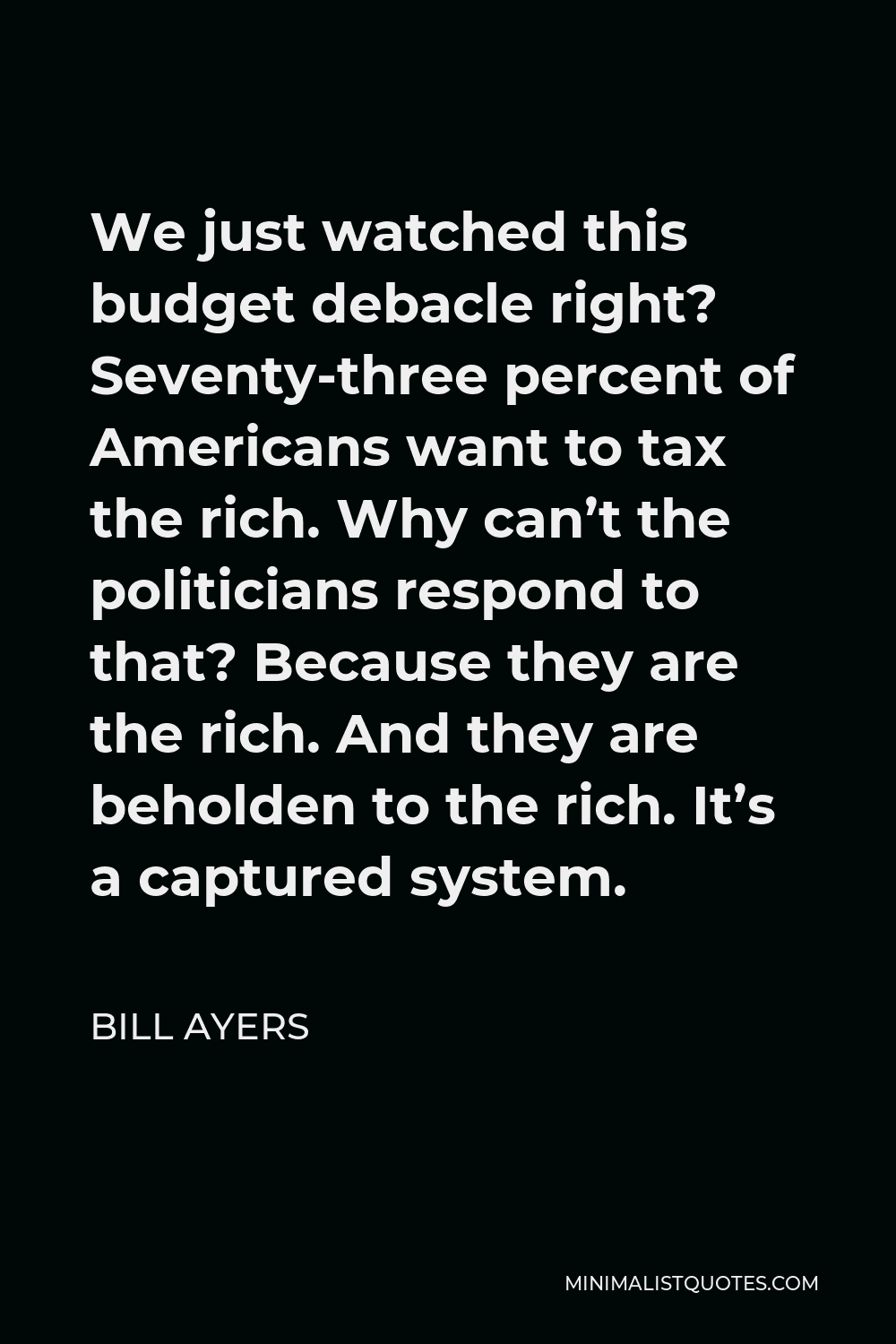
We just watched this budget debacle right? Seventy-three percent of Americans want to tax the rich. Why can’t the politicians respond to that? Because they are the rich. And they are beholden to the rich. It’s a captured system.
BILL AYERS -





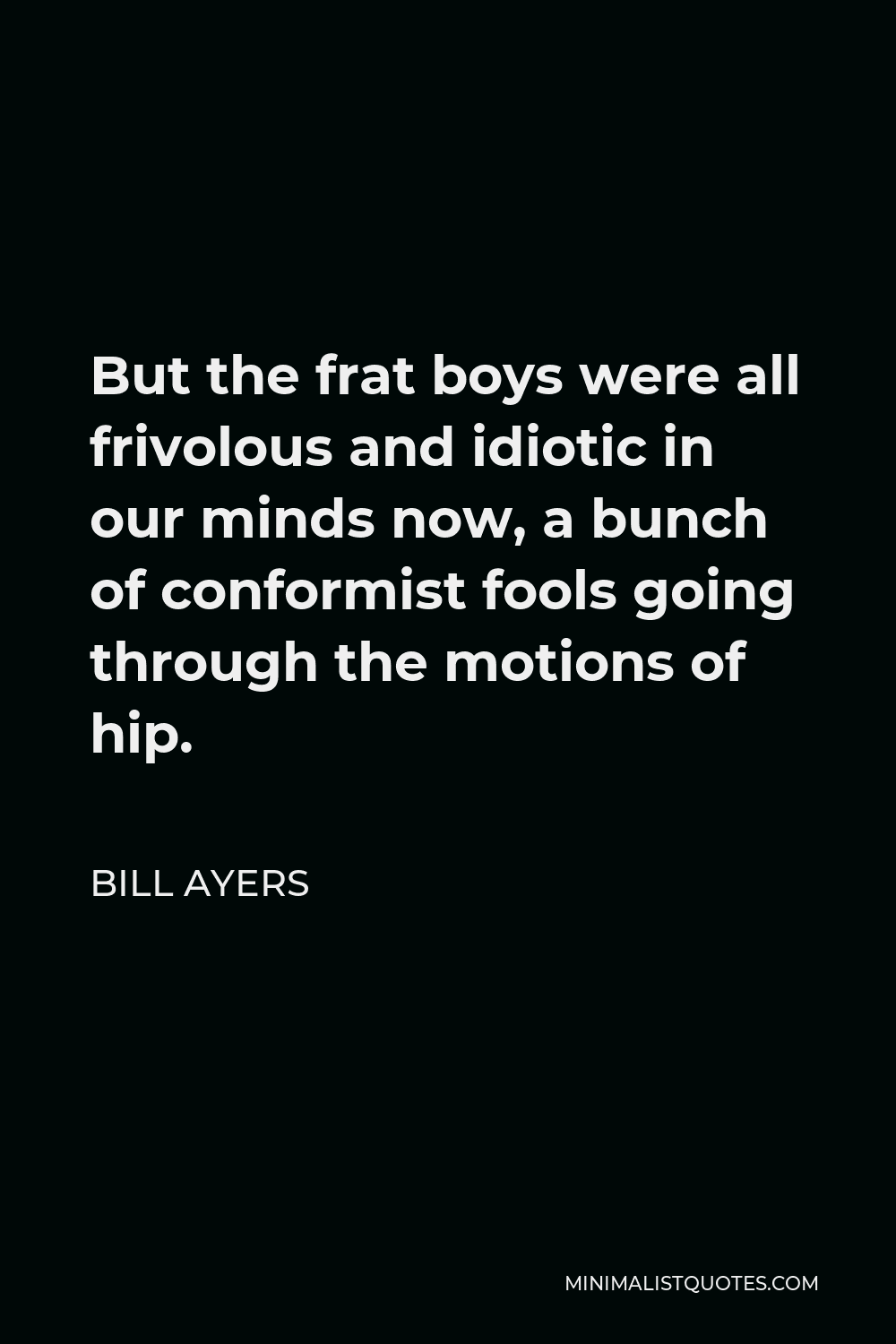
But the frat boys were all frivolous and idiotic in our minds now, a bunch of conformist fools going through the motions of hip.
BILL AYERS -






So I had the great advantage of being able to play up to the older kids and play down to the younger kids and I think that’s part of what propelled me to become a teacher at some point in my life. But it was a comfortable childhood. It was a privileged childhood.
BILL AYERS -





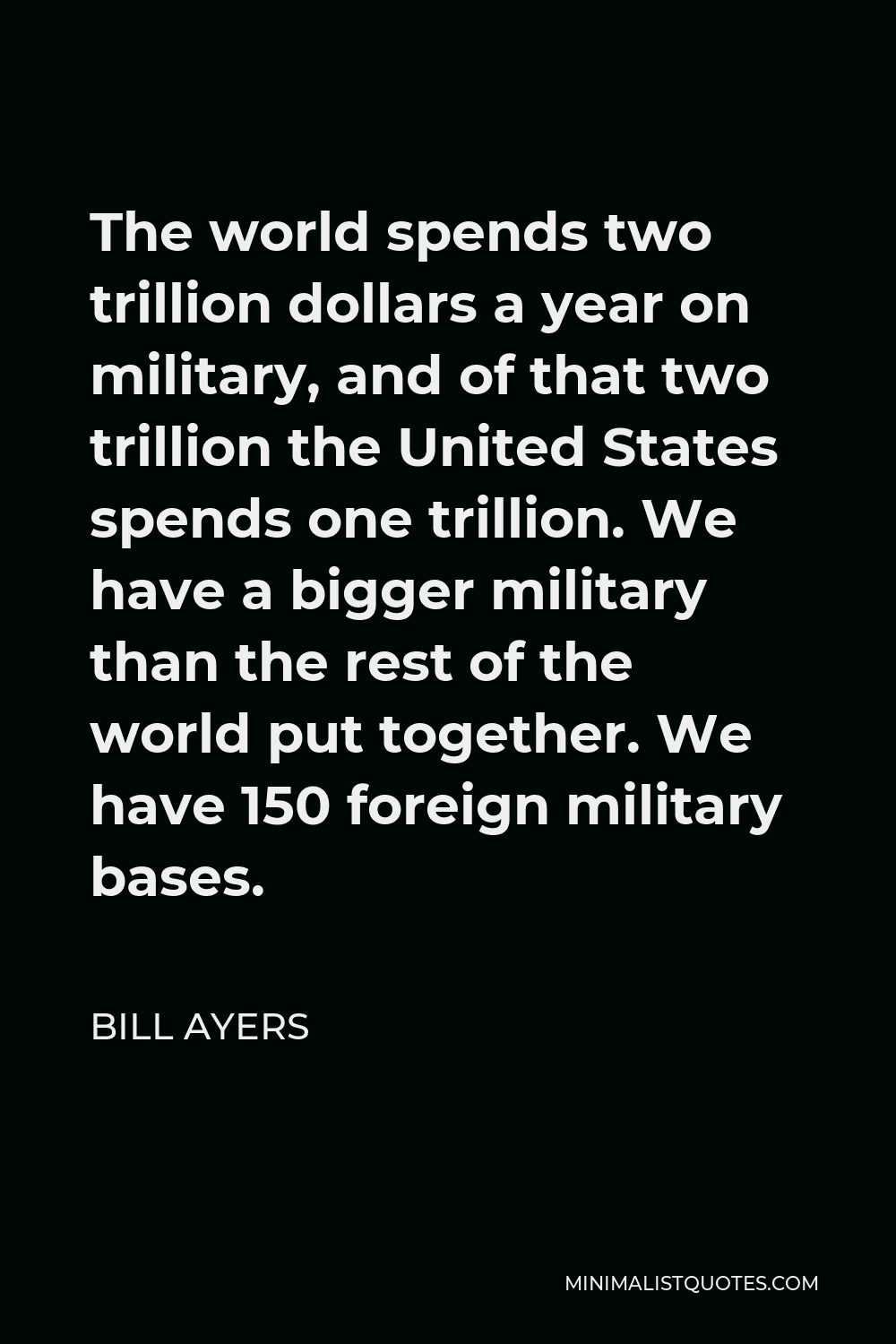
The world spends two trillion dollars a year on military, and of that two trillion the United States spends one trillion. We have a bigger military than the rest of the world put together. We have 150 foreign military bases.
BILL AYERS -





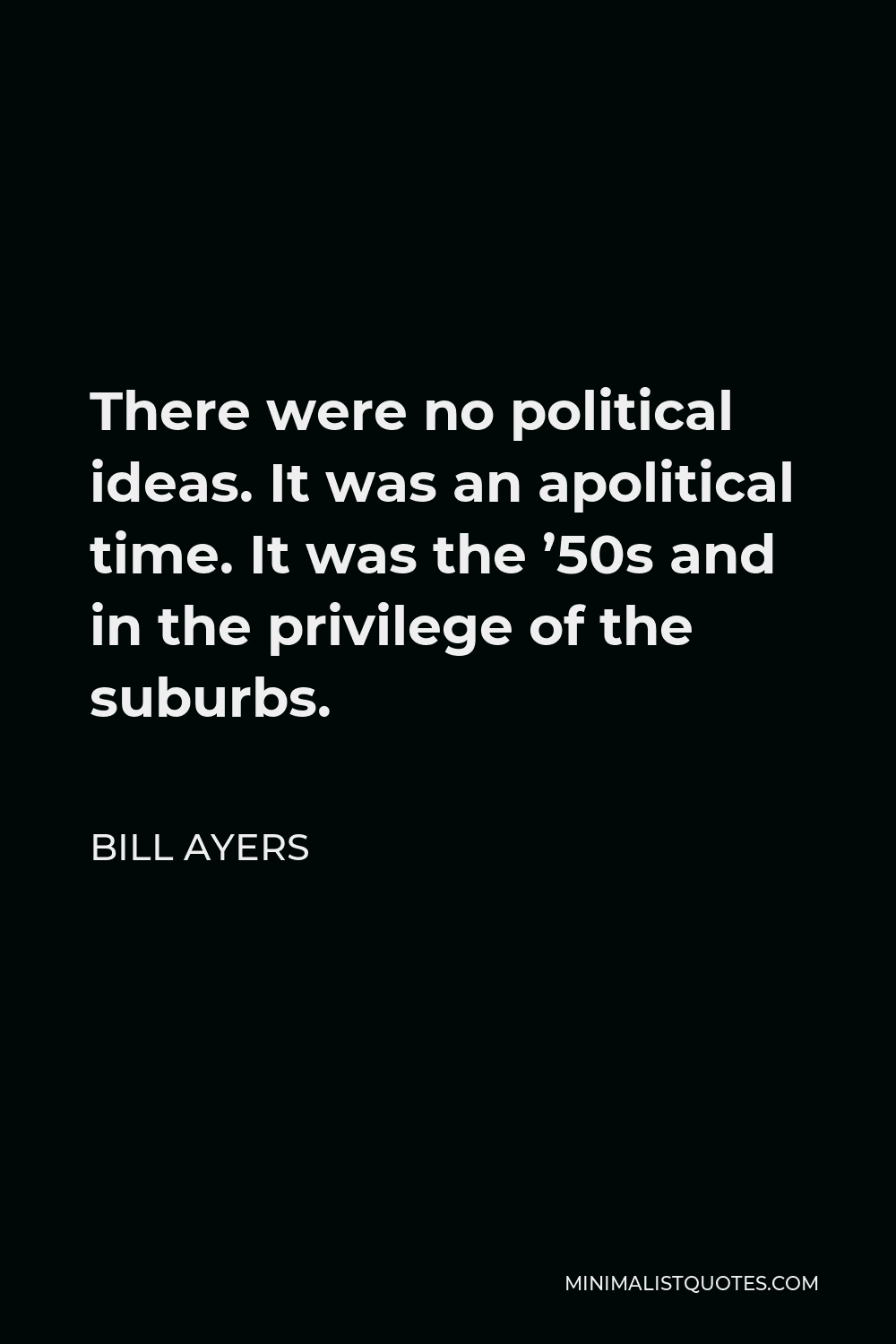
There were no political ideas. It was an apolitical time. It was the ’50s and in the privilege of the suburbs.
BILL AYERS -





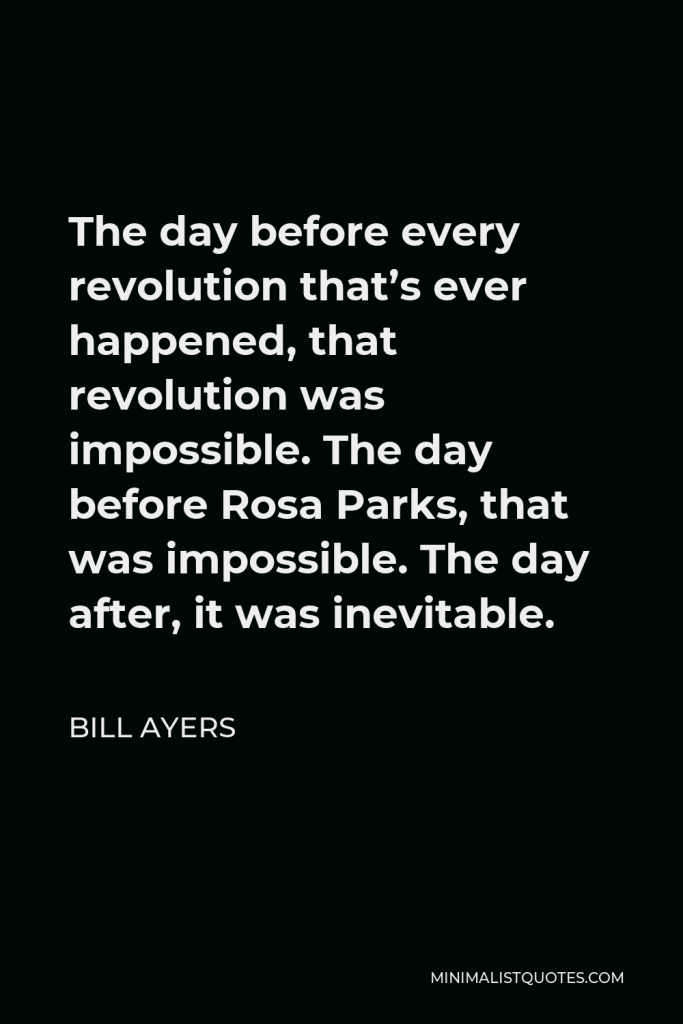

The day before every revolution that’s ever happened, that revolution was impossible. The day before Rosa Parks, that was impossible. The day after, it was inevitable.
BILL AYERS -





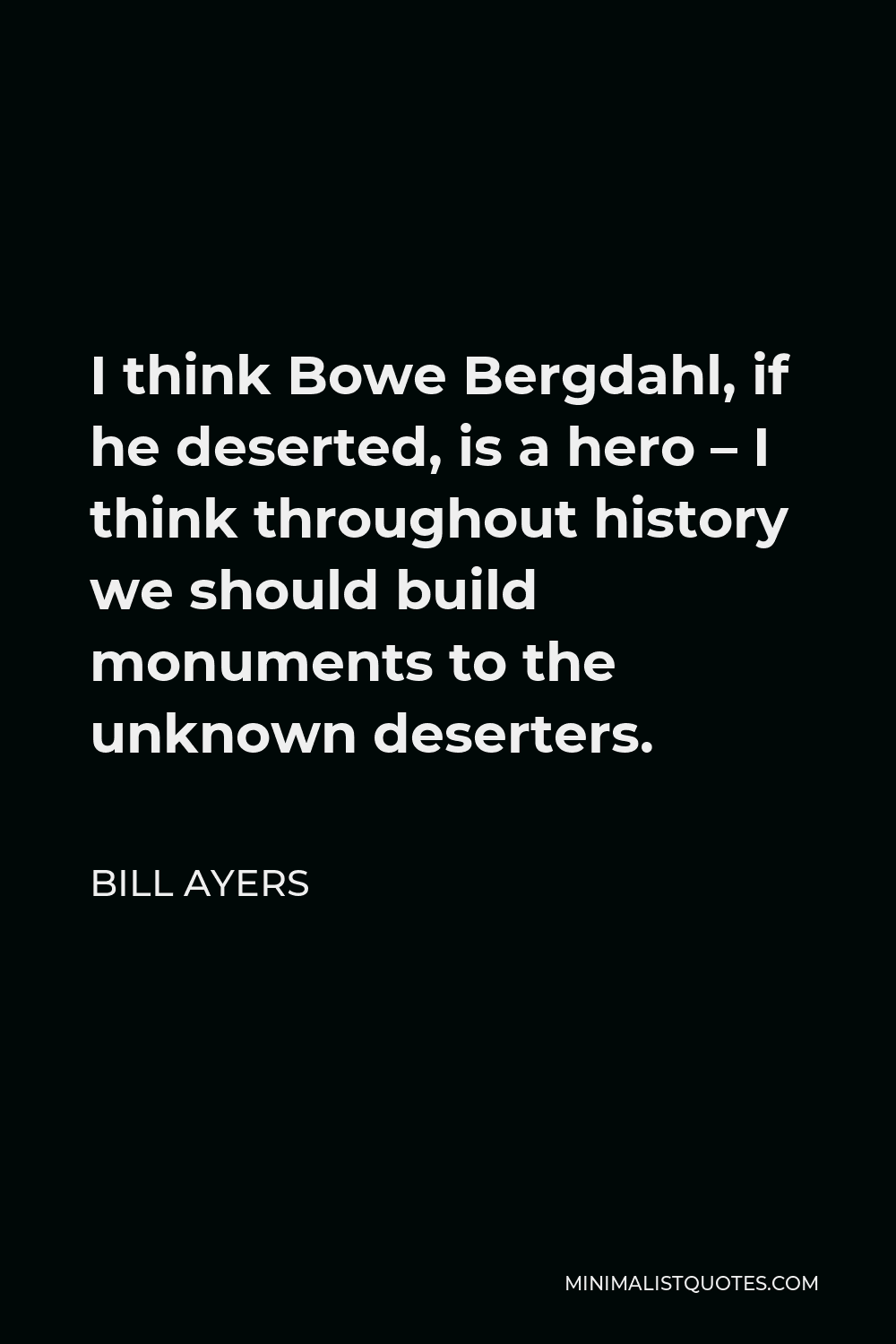
I think Bowe Bergdahl, if he deserted, is a hero – I think throughout history we should build monuments to the unknown deserters.
BILL AYERS -





![Bill Ayers Quote - [Martin Luther King] King was a socialist and King was an activist who was really a radical by the end.](https://minimalistquotes.com/images/martin-luther-king-king-was-a-socialist-and-king-w.jpg)
[Martin Luther King] King was a socialist and King was an activist who was really a radical by the end.
BILL AYERS -





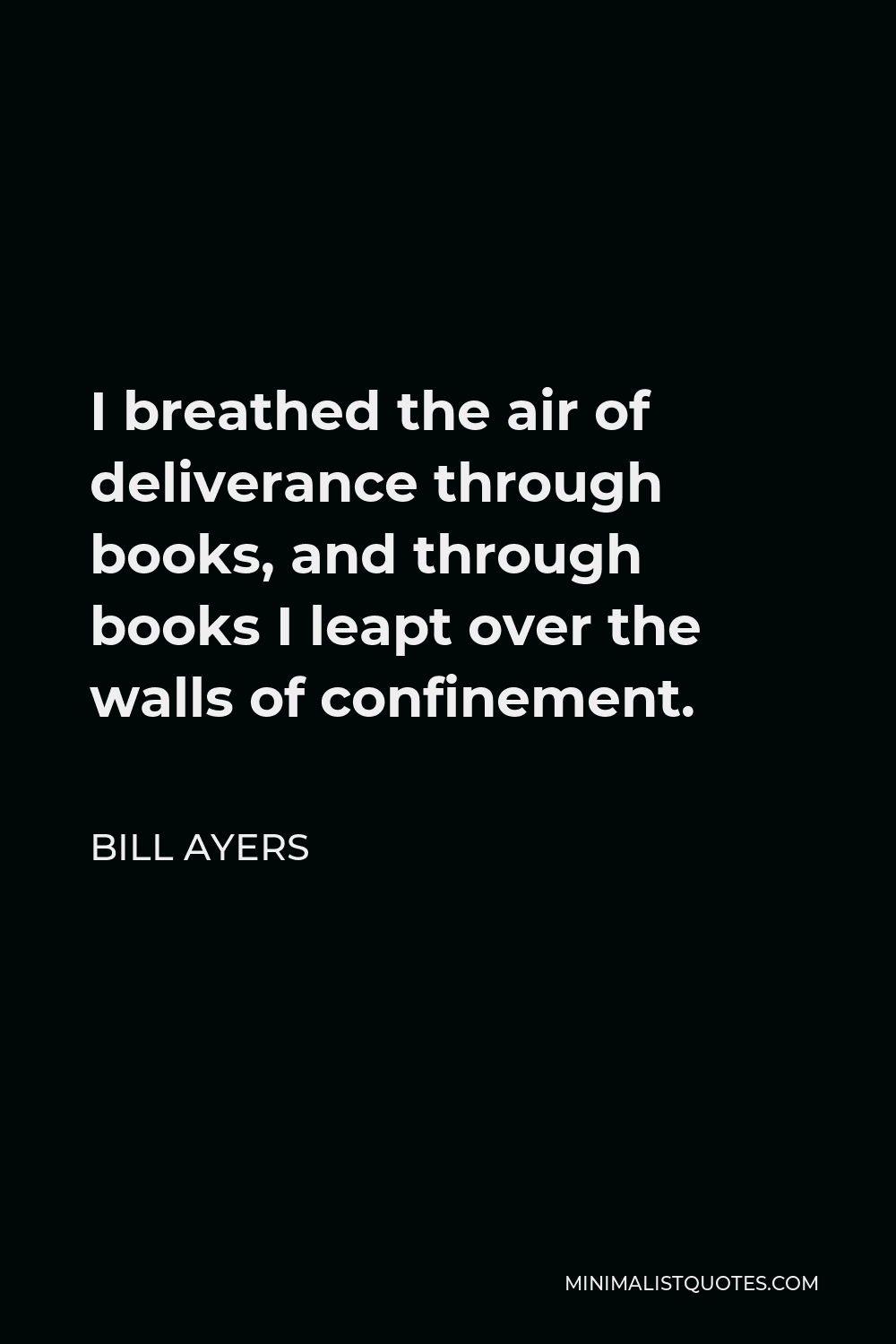
I breathed the air of deliverance through books, and through books I leapt over the walls of confinement.
BILL AYERS -





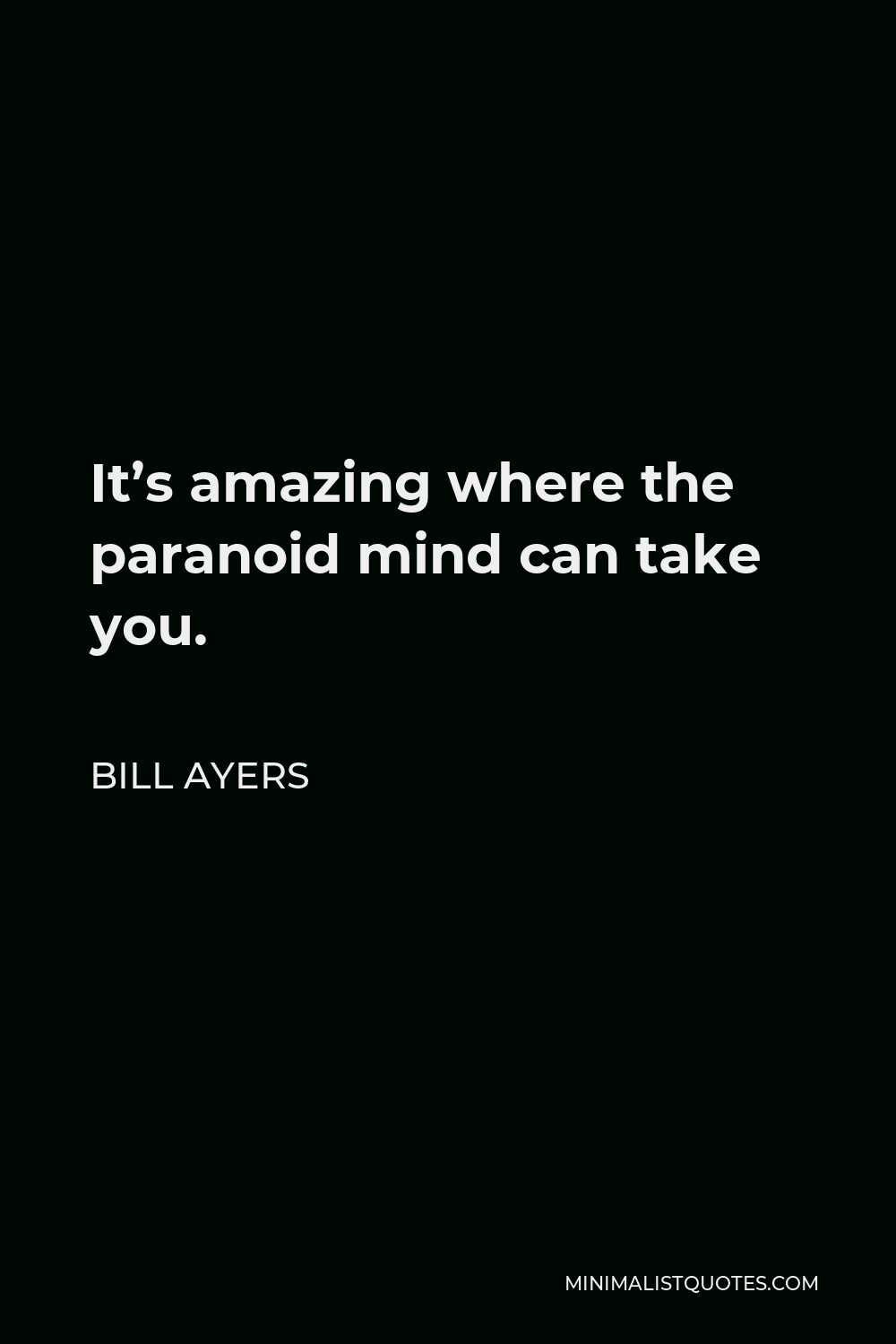
It’s amazing where the paranoid mind can take you.
BILL AYERS -





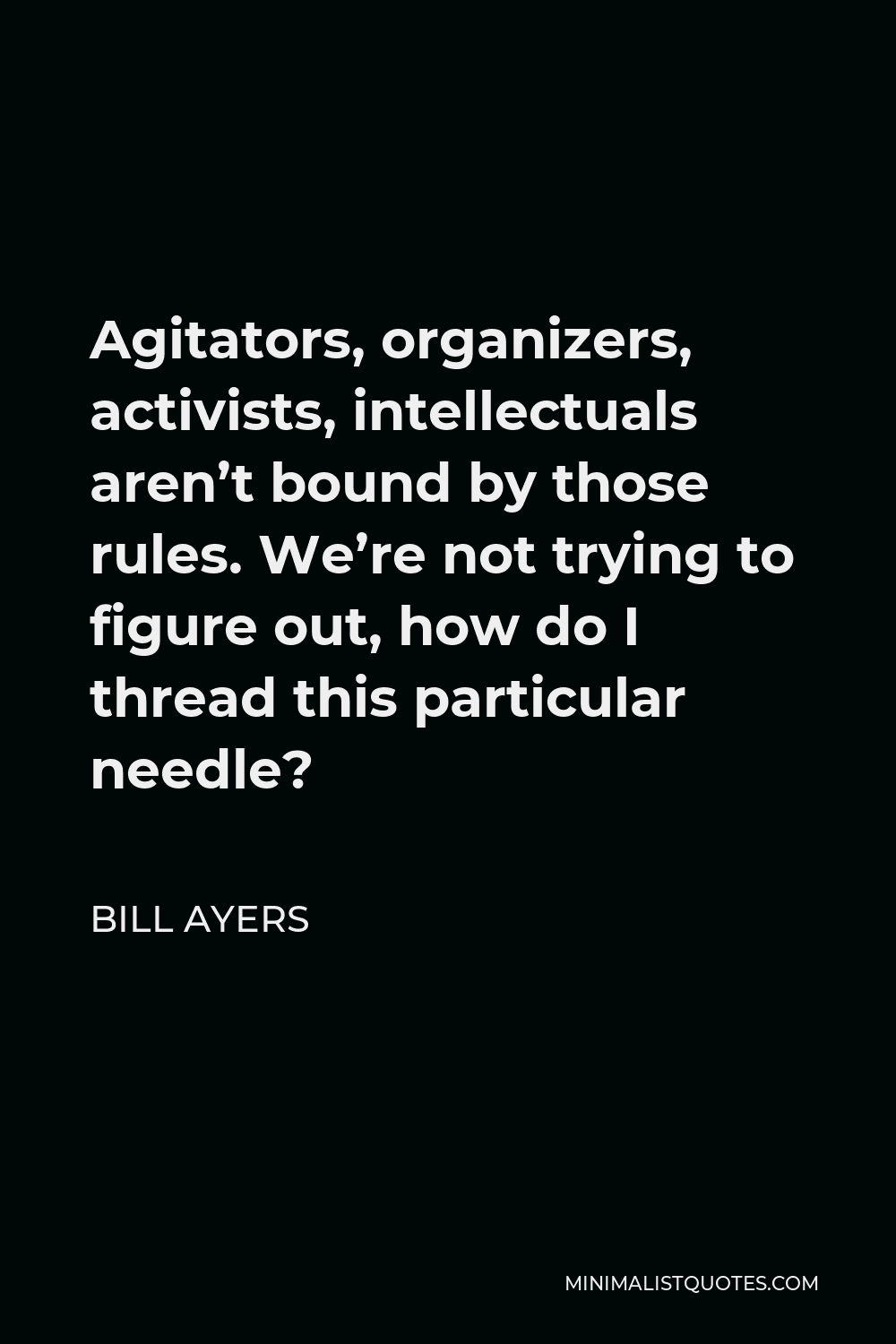
Agitators, organizers, activists, intellectuals aren’t bound by those rules. We’re not trying to figure out, how do I thread this particular needle?
BILL AYERS -





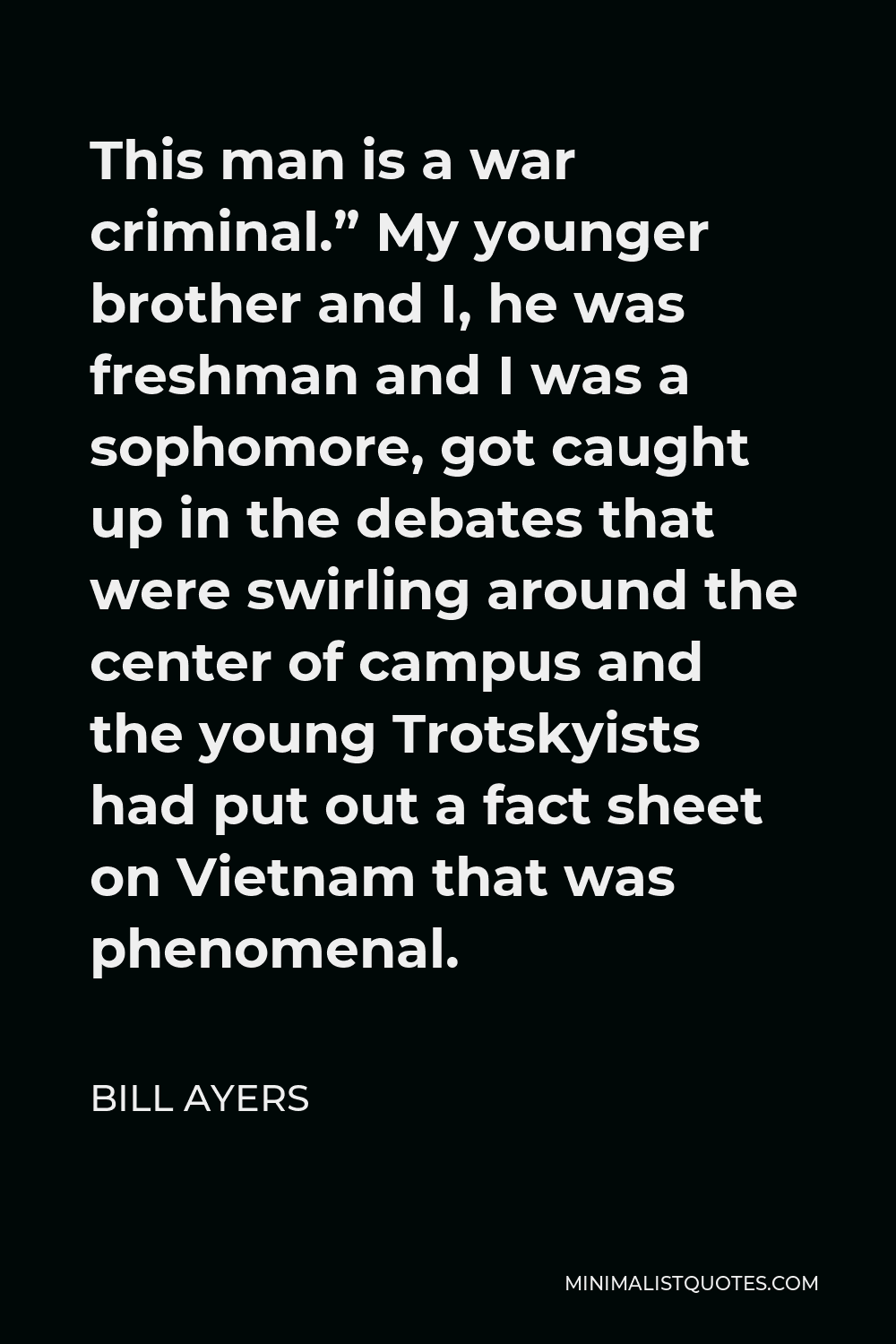
This man is a war criminal.” My younger brother and I, he was freshman and I was a sophomore, got caught up in the debates that were swirling around the center of campus and the young Trotskyists had put out a fact sheet on Vietnam that was phenomenal.
BILL AYERS -





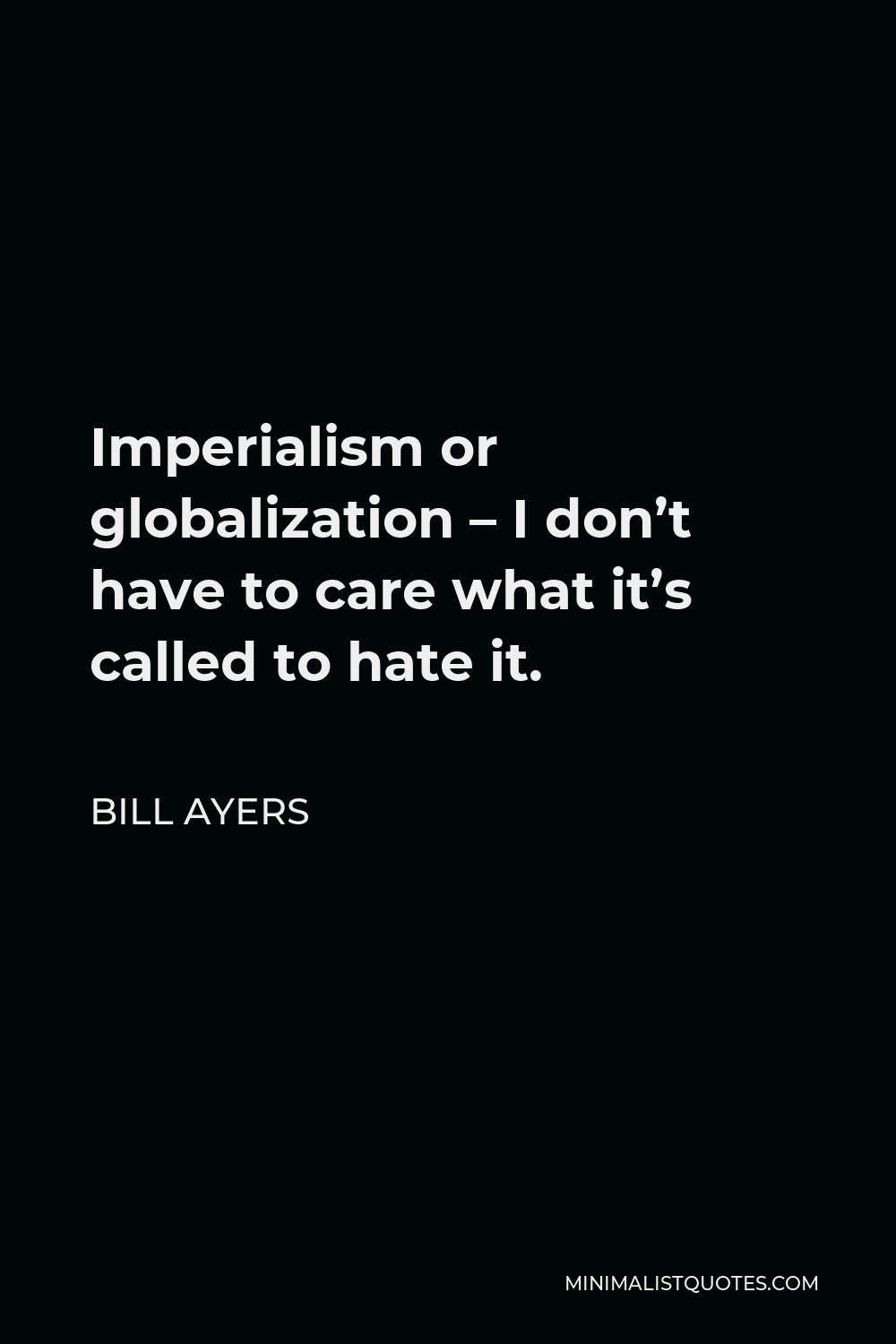
Imperialism or globalization – I don’t have to care what it’s called to hate it.
BILL AYERS -





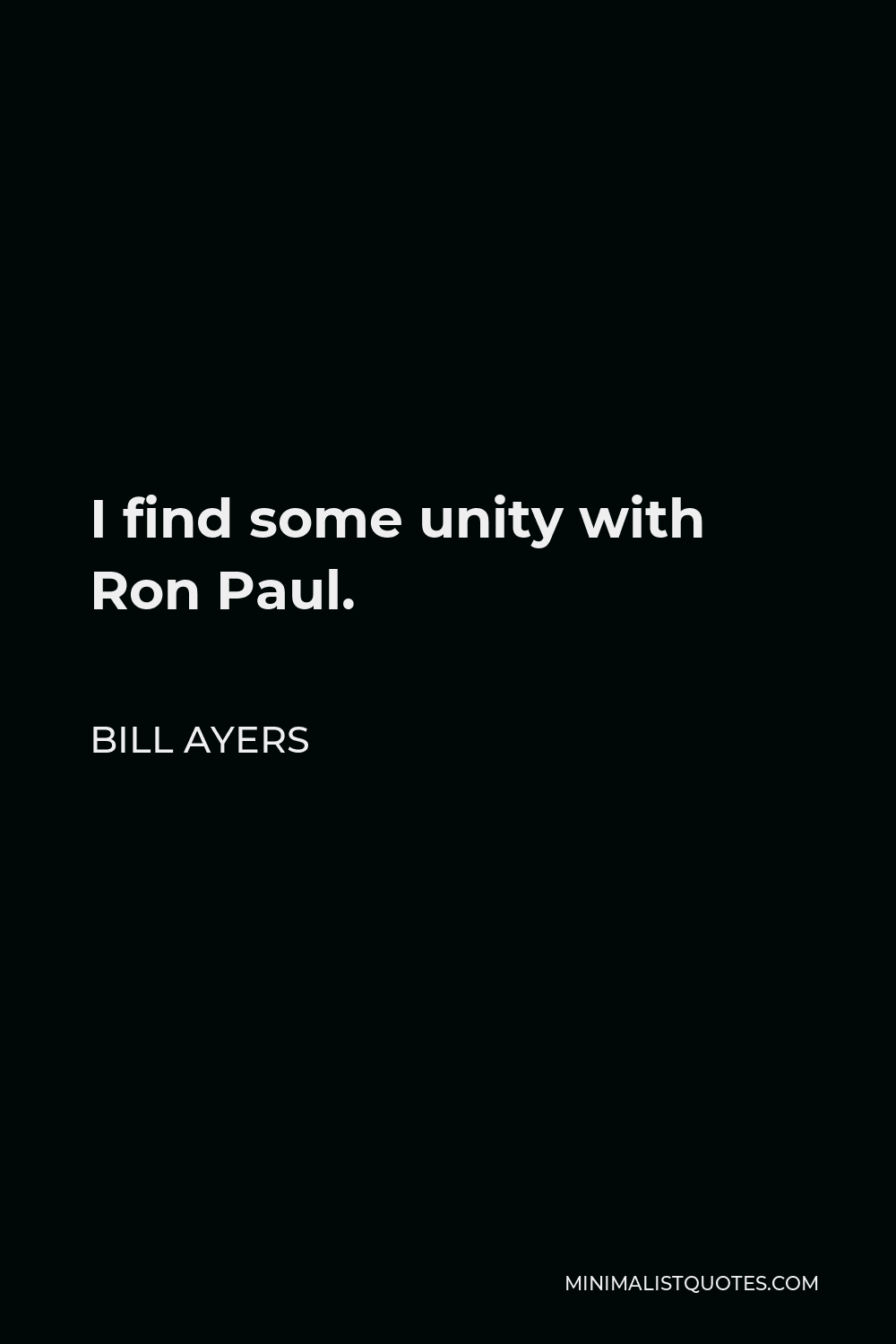
I find some unity with Ron Paul.
BILL AYERS
